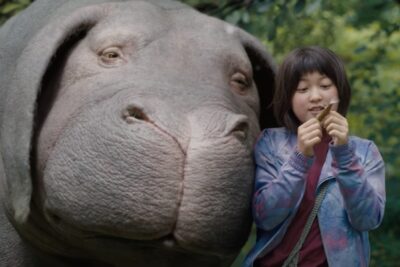Around the world, there are hundreds of thousands, perhaps even millions, of children growing up as happy, healthy vegans. Yet, certain myths persist about the social and nutritional aspects of offering your child a plant-based diet, and we have heard them all! Here are some of the more common myths around vegan parenting… and crucially, why they are so very wrong.
By Naomi Hallum
1. Kids who don’t drink cows’ milk will be calcium deficient.
As the parent of a toddler, I hear this a lot — that young children absolutely must drink cows’ milk to stay healthy.
As the target of relentless ‘Got Milk’ marketing, parents have come to view cows’ milk as an unparalleled nutrient source and perhaps the reason cows were put on this Earth in the first place. None of this is actually true, but I get why people think it is. If human breast milk is the best source of nutrition for most babies, then why wouldn’t another animal’s milk be just as nutritious? But let’s think about this for a moment. Why cows’ milk? Why not horses’ milk, dogs’ milk, or some other animal’s milk?
A cow’s docile nature and large udders has a lot to do with it. Cows have been bred to produce around 100 pounds of milk a day, which makes exploiting them very profitable. But it’s important to note that cows aren’t making milk for us. Like all other lactating animals, including humans, cows produce milk for their young and they only do so while pregnant or nursing.
Just as human breast milk is perfectly engineered by nature to nourish a growing human infant; cows’ milk is perfectly engineered by nature to nourish a growing bovine calf. And because the nutritional needs for a seven-pound human baby and a 70-pound calf are quite different, so too are the milks designed for them.
Cows’ milk and other dairy products — such as cheese, ice cream, butter and yogurt — may be rich in protein and calcium but they also contain high amounts of saturated fat, cholesterol, estrogen, and bovine growth hormones, which can be detrimental to our health and may even increase our risk of certain cancers. Childhood constipation, infantile colic, and acne have all been linked to cows’ milk, and despite the ingrained belief that milk is essential for strong bones, research shows that dairy products actually have little or no benefit for bone health. They’re not an exclusive source of calcium either.
Recently, I observed an online discussion between parents on what to do when a child refuses to drink cows’ milk, or shows an intolerance to it. The advice they received from other parents was to make sure the child eats lots of yogurt and cheese made from cow, sheep, or goats’ milk instead. No one mentioned the non-dairy milks and plant-based foods that are rich in calcium and other essential nutrients, and naturally free of lactose.
A cup of fortified soy milk contains between 150 and 300 milligrams of calcium, and about seven to 12 grams of protein, which is equivalent to cows’ milk. And then there are other plant milks, yogurts, and cheeses, made from almonds, oats, and cashews; leafy green vegetables like kale, spinach and turnip greens; and beans, sesame seeds and tofu — all of which are rich in easily-absorbable calcium.
Our tendency towards feeding dairy products to our children, and towards consuming them ourselves, is the result of convention, convenience, and misinformation reinforced by dairy industry marketing. In reality, it’s unnecessary for anyone other than a calf to consume cows’ milk, even in infancy. If breastfeeding isn’t an option for your newborn, then there are a range of plant-based infant formulas on the market that are FDA-approved and an excellent alternative to breastmilk. In terms of fat and nutrient content, plant-based formulas (commonly made from soy or rice) are comparable to cows’ milk-based formulas, but without the nutritional, ethical, and environmental downsides.
The benefits of choosing plant-based milk products over cows’ milk products for our children are numerous, which is why as a conscientious parent I feel confident about nourishing my daughter the vegan way.
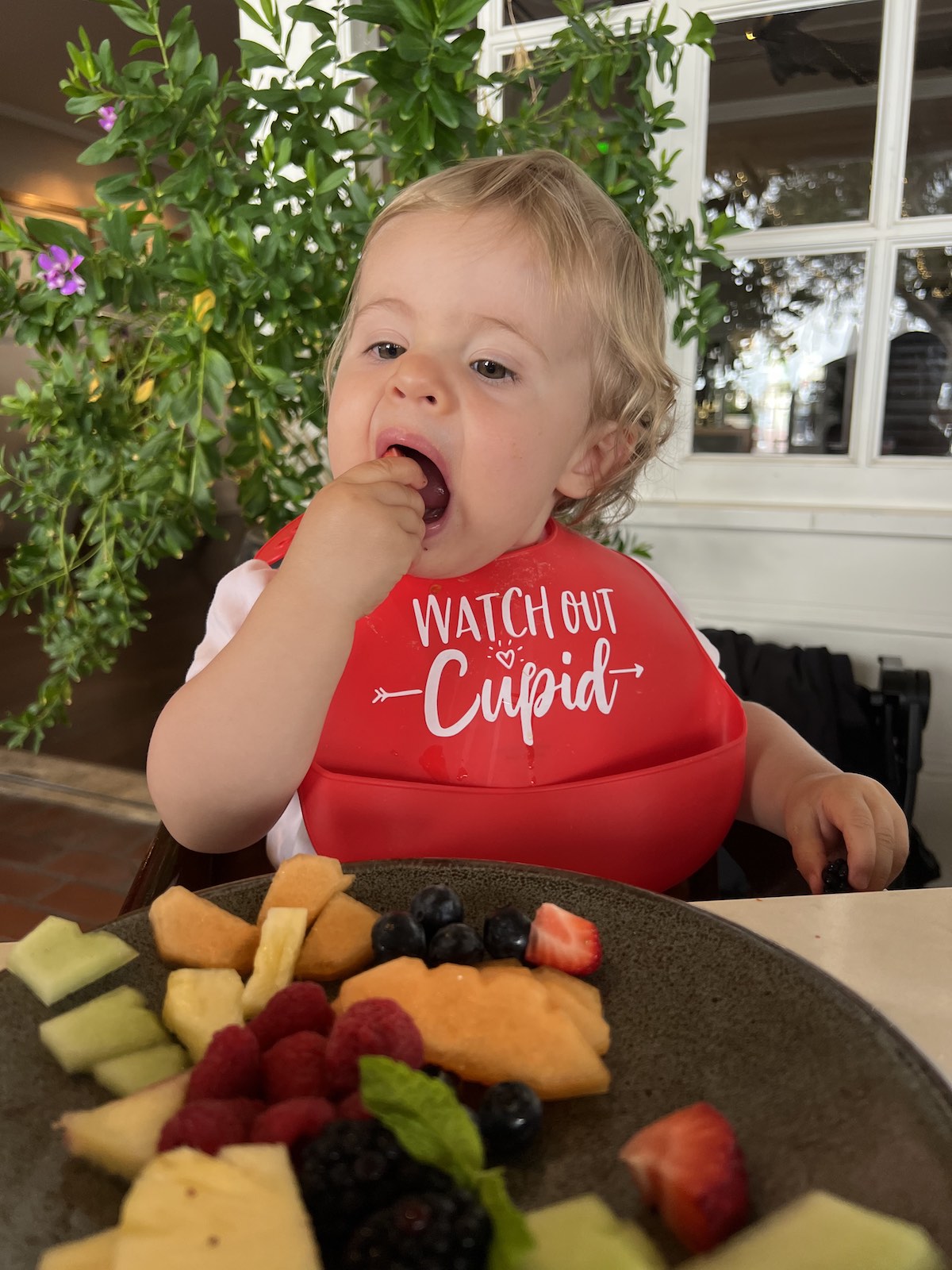
2. You’re forcing your beliefs onto your child.
I love my daughter more than anything, but as a toddler she needs my wisdom and guidance. Without it, she’d spend her days running around with no pants on, eating toothpaste.
It goes without saying that, from birth and up until a certain age, parents are responsible for making the decisions that their children cannot. What we teach and share with our children tends to be what we know, believe, and have experienced ourselves. We can only parent from our lived perspective, and so how we parent is often a unique gift we each give to our child.
I was raised by parents who regularly served me lamb chops and took me to see animals at a zoo or circus. They weren’t forcing their beliefs on me but rather exposing me to what they knew. And because of this exposure, I grew up with the view that eating, caging, and making animals jump through hoops is a normal and necessary part of the world we inhabit. But as I got older, the sheltered teachings of my childhood were replaced with a more mature and realistic view of the world — one that recognized all of the injustice and disparity in it.
In the face of injustice, most of us feel compelled to do something. When we see someone going hungry, we feed them. When we see someone who is cold, we offer them our jacket. When we witness racism, sexism, homophobia, or bullying, we speak up. And that’s probably because of traits we were taught as children: to be kind, considerate, and supportive toward others. These are pretty popular traits to teach our kids, but they’re surprisingly less popular when taught without limitations or exceptions.
For example: sometimes we limit our kindness and support of others by excluding certain people from our circles of compassion — based on their sexuality, skin color, gender, or beliefs. And sometimes we exclude certain species of animals, based on how much we might enjoy eating, wearing, or being entertained by them.
But these are all just forms of discrimination.
Expanding our circle of compassion to everyone, including all animal species, may be considered unusual or even outrageous to some, but so was extending the vote to women in the early 1900s. For me, it simply means removing any limitations to the kindness and consideration we teach our children.
Teaching my daughter to be kind to dogs and cats but ignorant of the suffering of farmed animals like cows, pigs, chickens, sheep, and fish may be normalized in our society, but it doesn’t make it right. Fundamentally, there’s no difference between the animals we farm and the ones in our homes who we teach our children to love. And since I’m acutely aware of this fact, it would be unethical for me to teach my daughter otherwise.
3. Vegan kids won’t get to enjoy being kids.
When we think of childhood, we tend to think of fun! Fun games, fun adventures, and fun foods. In fact, most of our beloved memories and traditions are tied to certain foods, and when it comes to childhood those foods probably include cupcakes, milkshakes, jelly beans, chocolate eggs, dino-nuggets, hotdogs, ice cream and cookies, among other deliciously unhealthy things!
But contrary to popular belief, vegan food can be just as indulgent and fun. Almost any non-vegan food you enjoy can be easily veganized, so that neither you, your child, nor your child’s friends would know it was vegan. From chocolate and ice cream, to hotdogs and nuggets, there’s a vegan version of so many goodies in most supermarkets and stores, or easy budget-friendly recipes for them online.
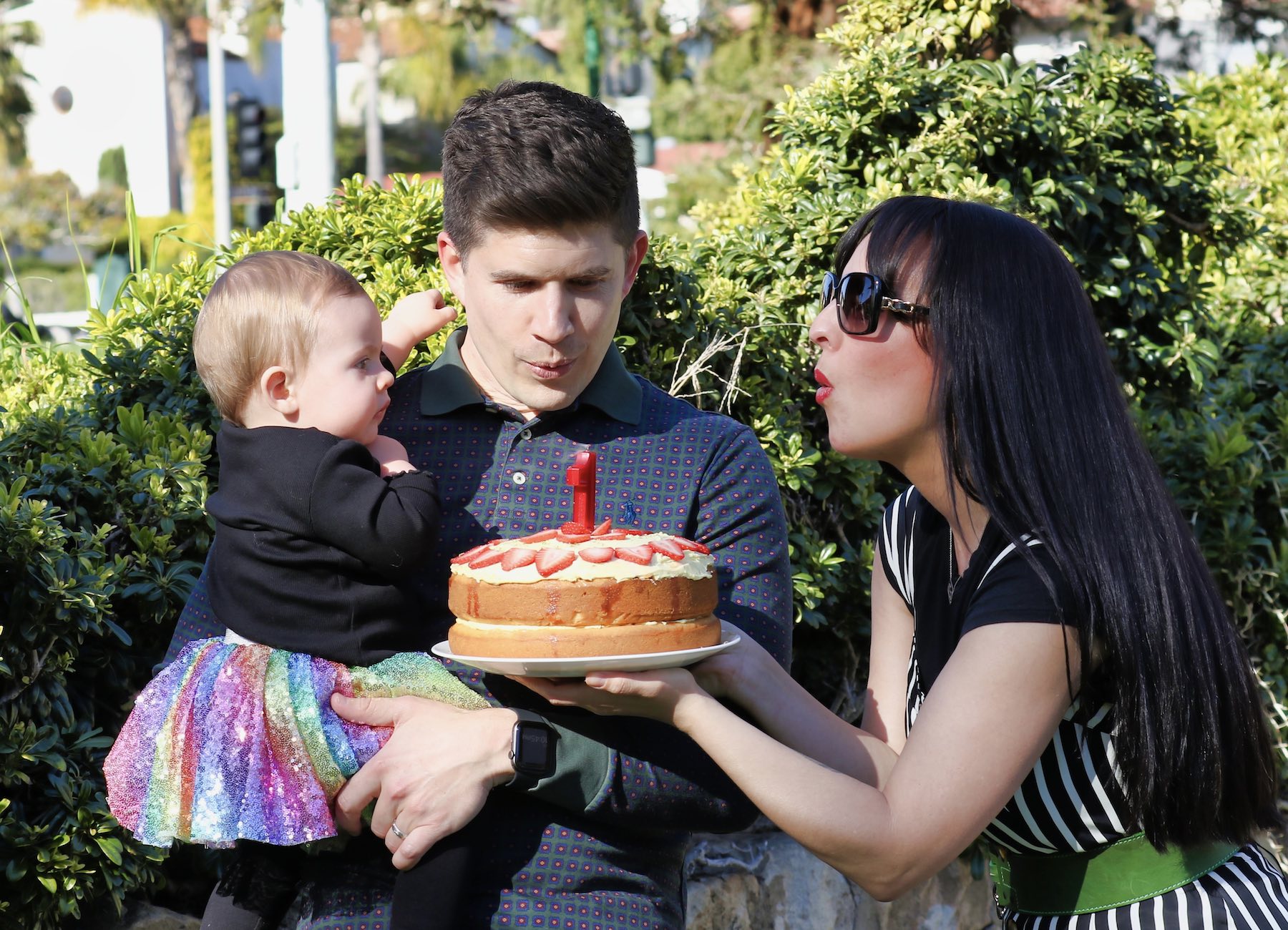
Don’t be afraid to try out various vegan products and recipes until you find the ones your children love most, like this lemon buttercream cake I made for my daughter’s birthday. Children who are just starting out on solid foods, or who’ve been eating a certain way for a while, may require repeated exposure to new foods and flavors in a pleasant, neutral environment before they accept them. Switching out dairy, eggs, and other animal-derived products won’t make your choc-chip cookies any less delicious, but it will make them a little healthier for your little ones and a lot better for the planet and its inhabitants.
Please remember that children thrive on natural, nutrient-dense whole foods, and that processed foods and sugary treats should only be offered on occasion, whether as part or a vegan or non-vegan diet.
4. Vegan kids won’t gain weight.
I have a toddler who I’ve raised on a vegan diet since birth, and she’s healthy, energetic, and in the 75th percentile for her weight. This is not the result of luck, but of taking a thoughtful approach to what she eats.
When it comes to feeding our children, our top priority must be to optimize their growth, development, and well-being — which we can do through food. When it comes to feeding my daughter, I make sure she’s consuming a diverse variety of plant-based foods that not only provide her with sufficient calories, but also the recommended amounts of both macro- and micronutrients. And just as calcium can be found in plant-based foods, so too can proteins, carbohydrates, essential vitamins, minerals, and healthy fats. In fact, the highest quality fat is naturally present in nuts, seeds, avocados, olives, and other whole plant foods.
Fat is an essential part of our diets, but it’s important to note that not all fat is good. Trans fats from processed foods, damaged fats from fried foods, and saturated fats from animal foods and tropical oils are strongly linked to adverse health effects such as high cholesterol levels and increased cardiovascular risk factors. Fats that tend to be beneficial to health are monounsaturated and polyunsaturated fats, both of which are concentrated in plants.
That’s why I add chia and flax seeds to my daughter’s morning oatmeal, peanut butter to her smoothies, and other high fat vegan foods — such as cashew yogurt, almond-cream cheese, homemade guacamole, tofu, and hummus — to her meals. The result? A healthy baby with very wholesome chubby cheeks!
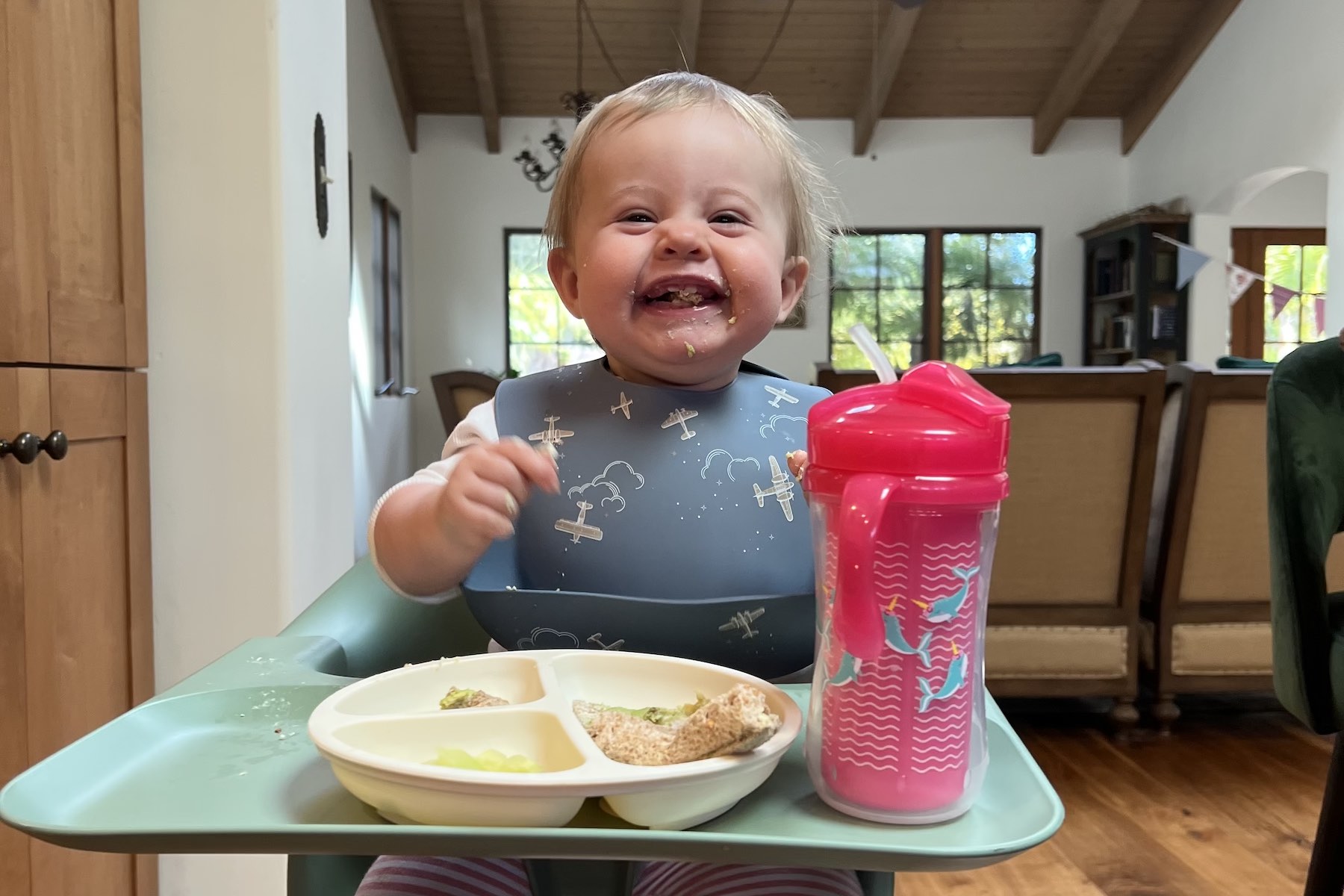
5. You’ll turn your kid into a social pariah.
I hope we can all agree that children should not become social pariahs because they’re eating or living in a way that is beneficial to their health, the planet, and animals. If anything, they should be praised and supported for it, in the same way that we praise our children when they show kindness, plant a flower, pick up litter, donate some of their toys to charity, or act conscientiously.
I have no intention of forcing my child to do anything she doesn’t want to do, and while I firmly believe that raising my daughter vegan is one of the greatest gifts I can give her, she will ultimately determine how she wants to eat and live when she’s old enough to do so. And while I may not agree with every choice she makes, I will never judge her or love her any less for those choices. All I hope is that she makes choices based on what’s right for her, rather than through a desire for social acceptance.
Kids shouldn’t be required to eat animals and be dismissive of things that matter in order to fit in, and this is the real issue we need to address. The pressure to fit in, to gain approval, or to avoid criticism that our children face today is very real and very dangerous, because it can prevent them from being themselves and damage their self esteem. Our differences are what make us beautiful and unique, and being confident about who we are and the things we care about is not only good for our mental health; it can also be infectious.
Imagine how many other children might be willing to do something for the betterment of themselves and others if they weren’t apprehensive about social judgment. As parents, we can help to create a safe space for our children by not perpetuating common myths about veganism and vegan families. Whether because of the way we look or dress, the language we speak or the religion we follow, the music we enjoy or the films we watch, the pronouns we use, what we choose to eat or how we choose to live our lives, we are all unique. From a social perspective, it shouldn’t matter if a child is eating a veggie-dog or a hot-dog. All that should matter is who they are inside and how they treat others.
So let’s put our children’s health before hotdogs and teach them to be kind to every kind instead.
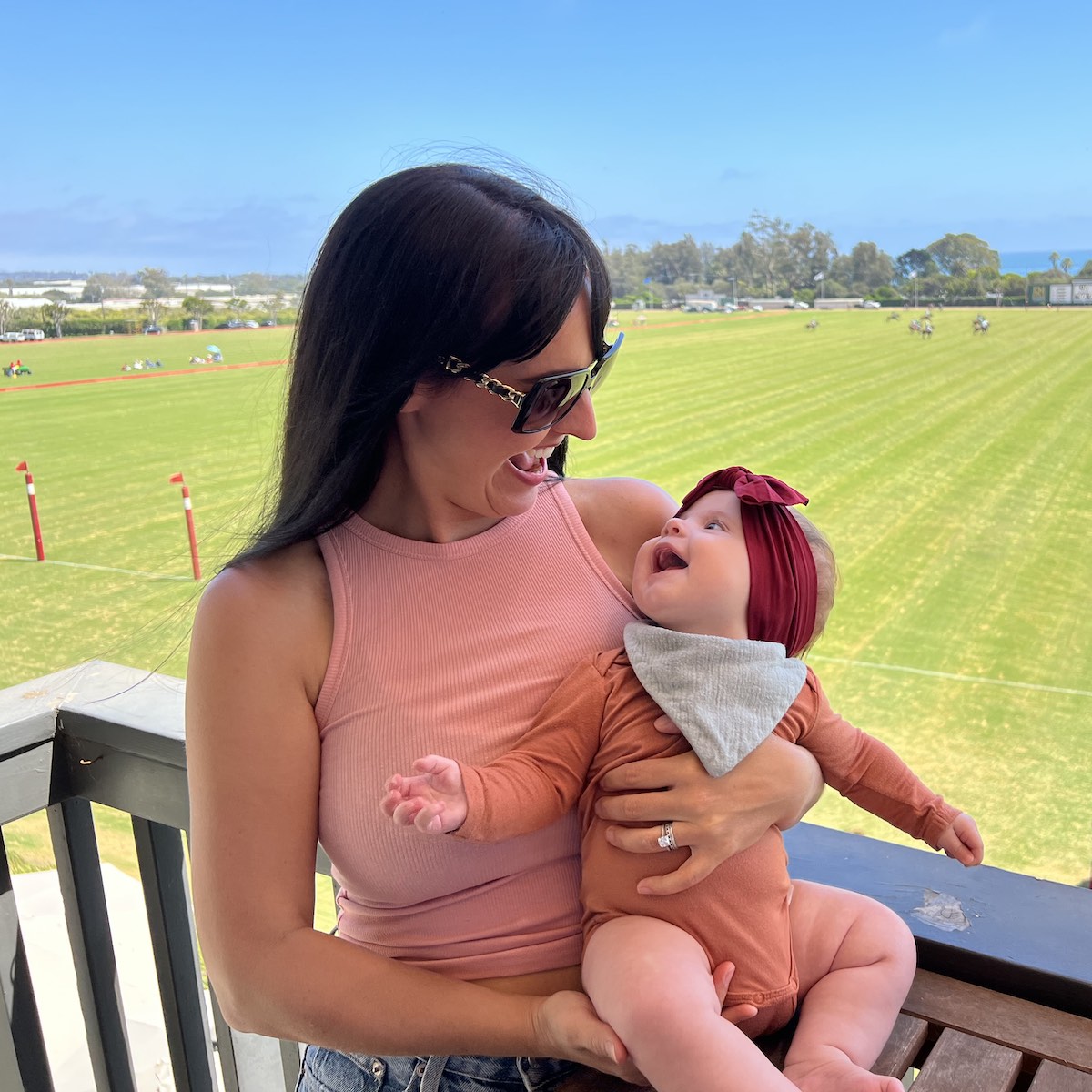
Naomi Hallum is the CEO of Generation Vegan. She stopped eating meat at age 10 and became vegan at the age of 30 after learning about the environmental and ethical issues associated with eggs and dairy. She lives in California with her husband and their daughter, Scarlett, who has been vegan since birth. Naomi loves hiking with their rescue dogs, cooking vegan food (particularly homemade focaccia bread, artichoke paella, and lentil dahl), and advocating for animal rights.

